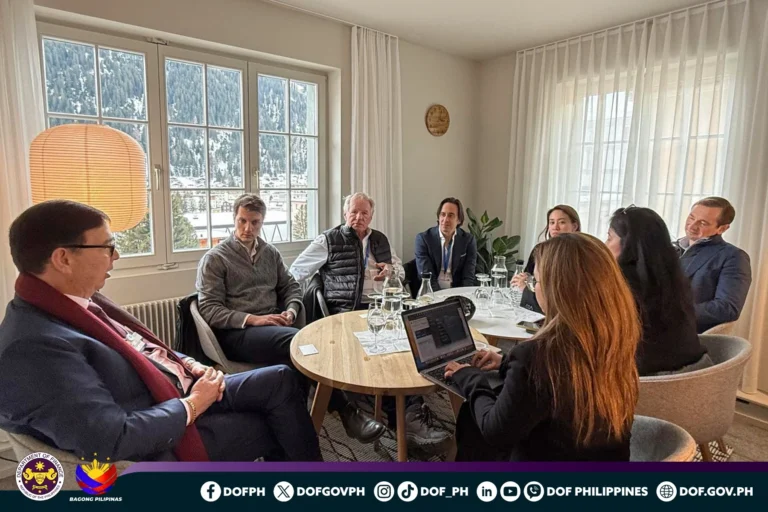The Bureau of Local Government Finance (BLGF) has stepped up its professionalization programs for fiscal officers of the local government units (LGUs) in 2019 with the completion of 46 training programs for LGU treasurers and assessors and by continuously implementing the Standard Examination and Assessment for Local Treasury Services (SEAL).
The BLGF said the SEAL, which is required for the designation of LGU treasurers and assistant treasurers, was fully implemented in June 2019. It is an exam-based competency certification system being implemented by Bureau in coordination with the Civil Service Commission.
According to the BLGF, it also fast-tracked the processing of appointments and designation of local treasurers and assistant treasurers in 2019.
Last year, Finance Secretary Carlos Dominguez III approved the appointments of 186 treasurers, while the BLGF designated 1,506 others to various assignments.
“For 2019, the 186 appointments represent 21.4 percent of existing vacancies of 868. This is higher than the 2018 accomplishment of 15.2 percent or 111 appointments versus 732 vacancies,” it said.
The BLGF, an attached agency of the Department of Finance (DOF), exercises administrative and technical supervision over the treasury and assessment operations of LGUs, and is tasked under the law to assist in the formulation and implementation of policies on LGU revenue administration and fund management.
Local government units (LGUs) improved their fiscal performance and tax collection efficiency in 2019, with revenues amounting to a combined P204.09 billion as of the third quarter of that year, representing a 12percent increase from the P182.27 billion collected in the same period in 2018 by all provinces, cities and municipalities, according to the Bureau.
The BLGF said in its latest report to Finance Secretary Carlos Dominguez III that local tax revenues accounted for 28 percent of the revenue source of LGUs as of the third quarter of 2019, which totaled P152.15 billion in that period.
This represents a 12 percent increase from the P135.56 billion in taxes collected by LGUs in the third quarter of 2018.
Non-tax revenues of LGUs amounted to P51.94 billion as of the third quarter of 2019, which was an 11 percent improvement from its collection of P46.7 billion in 2018 during the same period, the BLGF said in its report.
As of the third quarter of last year, non-tax earnings accounted for 9 percent of the revenue source of LGUs.
“Local revenues already reached 84 percent of the 2019 third-quarter target of P238.01 billion, which is 6percentage points higher than the same period in 2018,” the BLGF said in its report.
It said collections from local business taxes, which reached P95.11 billion or 99 percent of the BLGF target of P96.26 billion in the third quarter, contributed mostly to the increase in local revenues for that period.
“As of the third quarter of 2019, local revenues surpassed the 2018 collections for the same period by 12percent, which is mostly contributed by business tax collections,” said the BLGF in its report.
External sources such as the internal revenue allotment (IRA) share of LGUs, excluding barangays, accounted for 63 percent of their revenue source as of the third quarter of 2019, which amounted to P348.79 billion.
Underscoring the need to pass Package 3 of the comprehensive tax reform program (CTRP), which aims to institute reforms in the country’s land valuation system, is the LGUs’ low efficiency rate of 68 percent on real property tax collections in the third quarter. Real property tax collections of LGUs of P57.03 billion as against the BLGF’s target of P83.76 billion is still an improvement over the 58 percent collection efficiency rate of LGUs in 2018.
Package 3 as outlined in House Bill No. 4664, was approved on third and final reading in the House of Representatives last November and was already transmitted to the Senate.
“The BLGF, together with DOF-Strategy, Economics and Results Group (SERG), conducted various stakeholders’ orientations and briefings with LGU leagues, professional associations and non-government associations to solicit their support for Package 3,” the BLGF said.
For 2020, the BLGF’s target is for local governments to collect about P307.08 billion in local revenues, of which P54.19 billion will come from the provincial governments, P213.71 billion from cities and P39.21 billion from municipalities.
On exercising administrative discipline over LGU treasurers and assistant treasurers, the BLGF acted on and resolved 31 complaints against them, implemented 18 decisions and resolutions of the Office of the Ombudsman and other quasi-judicial bodies against erring officers, and dropped two treasurers from the rolls.
The BLGF also developed new bureau and DOF policies on local finance and treasury operations in 2019.
These include the Guidelines for the Review, Adjustment, Setting and/or Adoption of Reasonable Regulatory Fees and Charges of LGUs; Updated Guidelines on the Evaluation and Processing of Appointments of Local Treasurers; Prohibiting Local Treasurers to Serve as Members of Bids and Awards Committees (BACs) and Technical Working Groups (TWGs) of LGUs.
It likewise issued the Guidelines on the Imposition and Collection of Local Taxes, Fees and Charges on Professionals; Guidelines on the Grant of Relief on Charges and Interests on Tax on Transfer of Real Property Ownership in Support of the Estate Tax Amnesty; and the second edition of the Local Treasury Operations Manual (LTOM).
-oOo-





